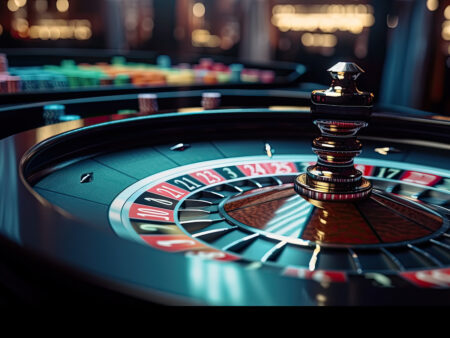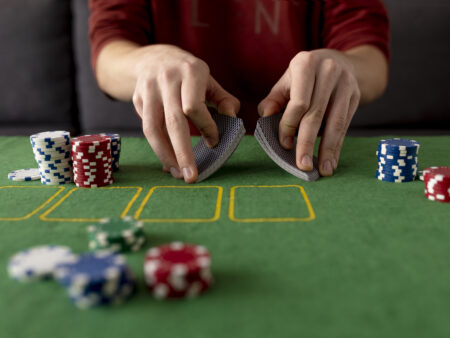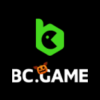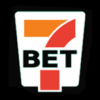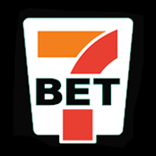If you’ve ever wanted to try your luck at a casino card game, blackjack is an excellent choice. It’s a popular game that combines strategy, skill, and a bit of luck. In this article, we will provide a comprehensive guide on how to play blackjack. Whether you’re a beginner or someone looking to refine your skills, this guide will help you navigate the game confidently.
How does blackjack work?
At its core, blackjack is a game between the player and the dealer. The objective is simple: get a hand total as close to 21 as possible without exceeding it. The player competes against the dealer, not other players at the table. Each card has a value, and the goal is to make strategic decisions based on the cards dealt.
How to Play Blackjack for Beginners
If you’re new to the game, here are the basic steps to get you started:
Step 1: Join a Table
To begin, find a blackjack table at a casino or play online. Take a seat, and wait for the next round to begin.
Step 2: Decide whether to Hit or Stand
Once the round starts, you’ll be dealt two cards face-up. Now, you must decide whether to “hit” (take another card) or “stand” (keep your current hand). The decision is based on your hand value and the dealer’s upcard.
Hit
If you choose to hit, the dealer will give you another card. You can continue hitting until you’re satisfied with your hand or until you exceed 21, resulting in a bust.
Stand
If you’re confident with your hand, you can choose to stand. This means you don’t want any additional cards, and the dealer moves on to the next player.
Step 3: Your Hand Value
Understanding your hand value is crucial in blackjack. Each card has a specific value: numbered cards are worth their face value, face cards (King, Queen, Jack) are worth 10, and the Ace can be worth either 1 or 11, depending on the situation.
Step 4: Dealer Reveals Their Cards
Once all players have made their decisions, the dealer reveals their facedown card. In some variations of blackjack, the dealer may also have a “hole card” which is revealed if their upcard is a ten-value card or an Ace. The original bet is returned to the player if they tie with the dealer. If not, the player forfeits their wager.
Step 5: See Who is Closer to 21
Now it’s time to determine the winners. If your hand value is closer to 21 than the dealer’s hand, you win. If the dealer’s hand value exceeds 21 or is lower than yours, you win as well. However, if the dealer’s hand is closer to 21, you lose.
Basic Blackjack Rules to Remember
While playing blackjack, keep these basic rules in mind:
Regular wins pay 1:1
When you win a hand against the dealer, excluding blackjack, your payout is 1:1. For example, if you bet $10, you’ll receive an additional $10 in winnings.
Blackjack wins pay 3:2
If you manage to get a blackjack, which is an Ace and a ten-value card, your payout is 3:2. So, if you bet $10, you’ll receive $25 in winnings.
16 and below
If your hand value is 16 or below, you must hit. This increases your chances of getting a higher hand value and avoiding a potential bust.
Hit or Stand
Deciding whether to hit or stand requires careful consideration of your hand value and the dealer’s upcard. Refer to a basic blackjack strategy to make informed decisions.
Split
If your initial hand consists of two cards with the same value, you have the option to split them into two separate hands. This allows you to play each hand independently, increasing your chances of winning.
Double Down
Doubling down means doubling your initial bet after receiving your first two cards. In return, you receive only one additional card. This move is advisable when your hand value is strong, and the dealer’s upcard is weak.
Advanced Betting Options
As you become more experienced in playing blackjack, you can explore advanced betting options. Here are a few to consider:
Insurance
Insurance is a side bet offered when the dealer’s upcard is an Ace. It protects you against the possibility of the dealer having a blackjack. If the dealer indeed has a blackjack, the insurance bet pays 2:1.
Surrendering
In some casinos, surrendering is allowed. It means giving up half your bet and forfeiting the hand. Surrendering can be a strategic move if you believe your chances of winning are slim.
Soft 17
A soft 17 is a hand containing an Ace counted as 11. In some variations, the dealer must hit on a soft 17, while in others, the dealer must stand. Be aware of the rules regarding Soft 17 to adjust your strategy accordingly.
Taking even money
If you have a blackjack and the dealer’s upcard is an Ace, you can choose to take even money instead of the 3:2 payout. This option guarantees you an immediate 1:1 payout.
Improve Your Chances of Winning
Here are some valuable tips to improve your chances of winning at blackjack:
Tip 1: Manage Your Bankroll
It’s crucial to set a budget and stick to it. Never bet more money than you can comfortably afford to lose. This ensures you can enjoy the game without financial stress.
Tip 2: Memorize a Basic Strategy
A basic strategy involves making optimal decisions based on your hand value and the dealer’s upcard. Memorize the strategy chart and refer to it during gameplay.
Our Top Blackjack Tips
Here are our top four blackjack tips to help you succeed:
- Don’t bet money you can’t afford: Gambling should be fun, so only wager money that you can afford to lose.
- Memorize a basic strategy: Increase your chances of winning by mastering a basic strategy and applying it consistently.
- Never bet more than half your stack on a single bet: This reduces the risk of losing a substantial portion of your bankroll.
- Hold your nerve: Blackjack requires a level head. Stay calm and make rational decisions based on the game’s progression.
Ready To Give Blackjack a Try?
Now that you have a solid understanding of how to play blackjack, it’s time to put your knowledge to the test. Head to a casino or find an online platform that offers blackjack games. Remember to play responsibly and enjoy the excitement of this classic card game.
FAQs
Q1: Can I count cards in blackjack to gain an advantage?
Counting cards is a technique that some players use to gain an edge over the casino. However, it’s important to note that card counting is not illegal, but many casinos frown upon it. Additionally, it requires significant skill and practice to be effective.
Q2: What is the best way to practice blackjack without risking money?
If you want to practice blackjack without risking real money, many online casinos offer free play or demo versions of the game. This allows you to play with virtual chips and familiarize yourself with the gameplay and strategies.
Q3: Can I play blackjack online for real money?
Yes, numerous online casinos offer real-money blackjack games. Enure you choose a reputable and licensed online casino to ensure a safe and fair gaming experience.
Q4: How many decks of cards are used in a typical blackjack game?
The number of decks used in a blackjack game can vary. It typically ranges from one to eight decks, with six decks being the most common in many casinos.
Q5: Are there any variations of blackjack that I should be aware of?
Yes, there are several variations of blackjack available, such as Spanish 21, Pontoon, and Double Exposure. Each variation has its own unique rules and gameplay, so it’s essential to familiarize yourself with the specific rules before playing.
